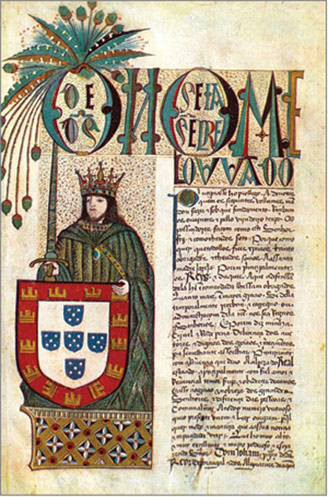
PROJECT
This project aims for a very concrete goal: to analyse the process through which the crown appoints, permanently and systematically, literate magistrates (juízes de fora) to the most important municipalities of the kingdom of Portugal. The detailed explanation of this process, including the number of the human resources involved therein, will contribute to the understanding of one of the pillars of the construction of the Modern State. In effect, the extension of the crown's judicial apparatus (in size and complexity) implies an irrevocable loss in autonomy for the local communities. The appointment of these magistrates, which are exogenous to the communities, hurts the consensual status quo established between the crown and the municipal oligarchies upon which much of the culture and the political system of the Ancien Regime were erected.
Actually, current knowledge about the exercise of first instance justice during the late Middle Ages indicate that the episodic and appointment of magistrates was a royal initiative that invariably triggered conflicts with the elected local authorities. Conversely, the image conveyed by the Modern Age, grounded on the research carried out for the 17th and 18th centuries, is one of an existing structure for the administration of justice established by the crown that matches a judicial apparatus active in the main cities and towns of the kingdom.
These two opposing historiographical discourses, relative to the Medieval and Modern Ages, suggest that a period of acceleration for this process of change must have taken place. In fact, a chronological hiatus that corresponds roughly to the 16th century has been, until now, absent from research. The reasons for such an omission are related to field separations between medievalists and modernists that end up erecting temporal boundaries in research studies, minimizing the importance of transitional periods. And, obviously, the gradual evolution of the juridical order and the functioning of the institutions throughout the Ancien Regime do not adjust to artificial historiographical cuts.
Under these circumstances, ours is an innovative project because it brings together specialists in the Medieval and Modern eras, not for a long durée kind of research (without abandoning their respective chronologies and, at the most, using a similar analytical grid) but to share the investigation of a short period, a single century, that has been considered a no-man's land as far as the evolution of the crown's judicial apparatus is concerned.






